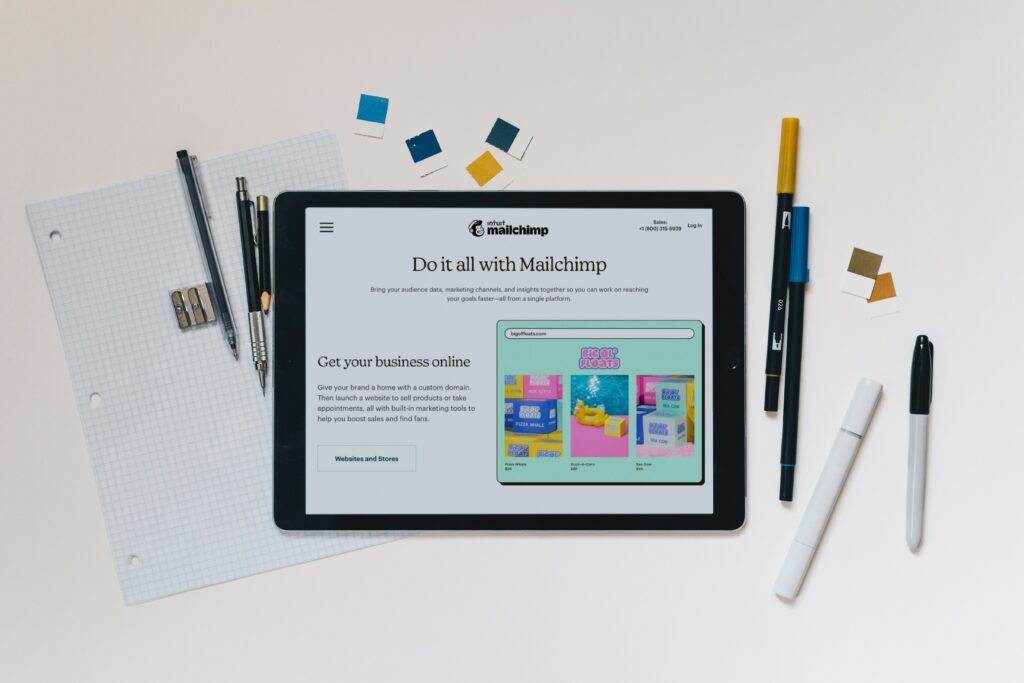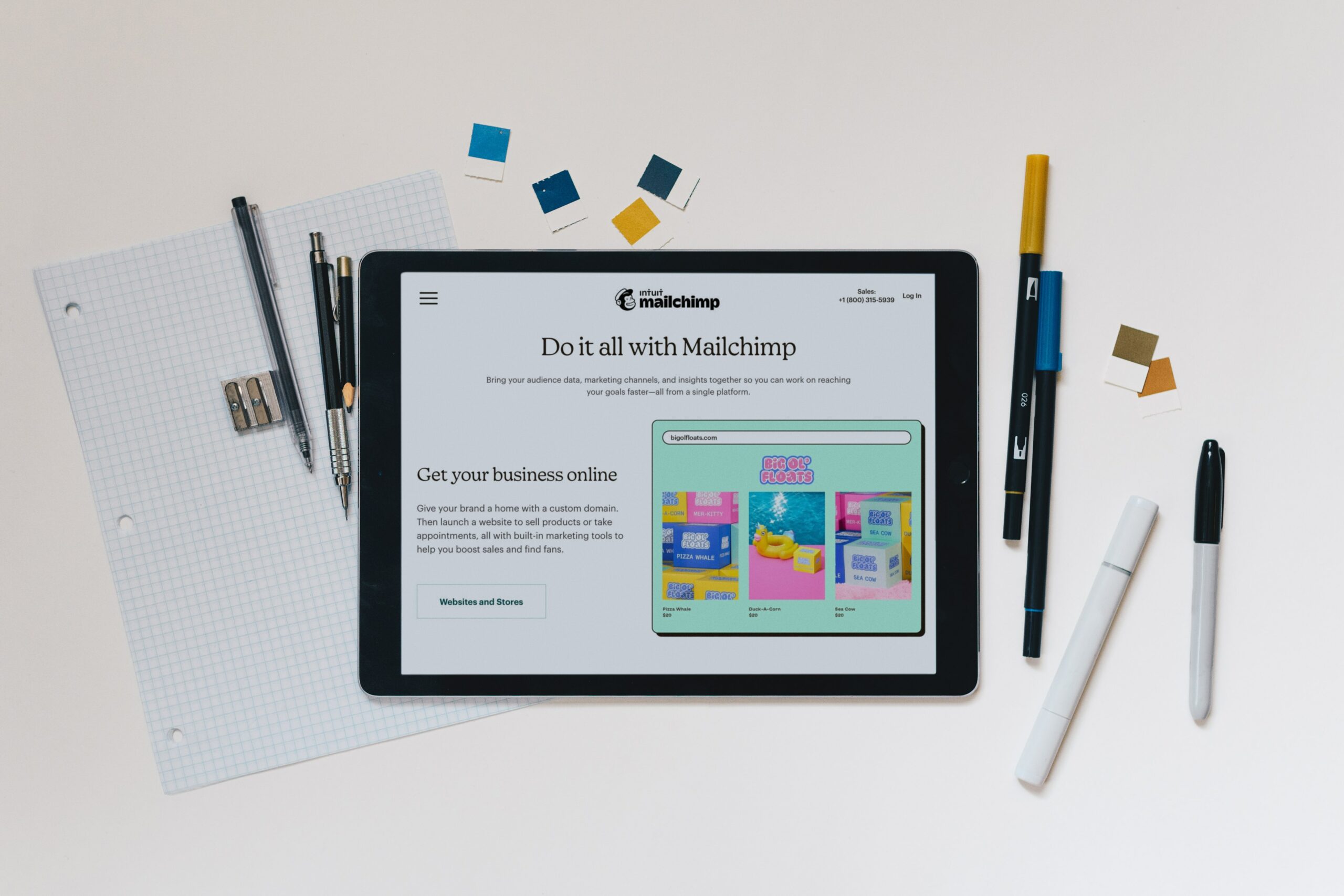

How to Start a Small Business in Australia in 2023

As Seen On
Starting a small business is a dream for many people, but it can also be daunting. There are so many things to consider and many steps to take that it takes time to know where to start.
But with a little planning and hard work, you can make your dream of entrepreneurship a reality.
In this blog post, we’ll go over the key steps you need to take when starting a small business so that you can set yourself up for success.
From coming up with a business idea and conducting market research to choosing a business structure and building your team, we’ll cover everything you need to know to get your business off the ground.

So if you’re ready to take the plunge and start your own business, keep reading!
Table of Contents
Benefits of Starting a Small Business:
There are many benefits to starting and running a small business. Some of the top benefits include:
- Being your boss: When you own a small business, you can make decisions and chart your course. You don’t have to answer to anyone else; you can create a business that aligns with your values and goals.
- Greater flexibility: As a small business owner, you have more flexibility regarding your schedule and how you run your business. It can be especially appealing if you have other commitments, such as family or personal responsibilities.
- The opportunity to make a difference: Small businesses often have a close-knit relationship with their customers and community. As a small business owner, you have the chance to make a positive impact on the people and places you serve.
- Potential for financial rewards: While running a small business comes with its fair share of risks, it also has the potential for financial rewards. With hard work and dedication, you can build a successful business that generates a profit and provides a good income for you and your family.
- Personal and professional growth: Being a small business owner allows you to learn and grow personally and professionally. You’ll gain valuable skills and experiences that can help your business and personal life.
Things to keep in mind before starting a Small Business:
Starting a small business is a big undertaking, and it’s essential to be well-prepared before you take the plunge. Here are some things to keep in mind before starting a small business:
- Have a solid business plan: A business plan is a roadmap for your business, outlining your goals and how you plan to achieve them. It should include details about your target market, marketing and sales strategies, financial projections, and more.
- Understand your market: Conduct market research to understand your target audience and the competition. It will help you make informed decisions about your business and give you a better chance of success.
- Be prepared for hard work: Starting and running a small business requires hard work and dedication. Be ready to put in long hours and make sacrifices to make your business a success.
- Get the right team in place: As a small business owner, you can’t do everything alone. Surround yourself with the right team of employees, contractors, and advisors to help you succeed.
- Be flexible: The business world is constantly changing, and as a small business owner, you’ll need to adapt to new challenges and opportunities. Be ready to pivot and make changes as needed.
- Have a support system: Starting a small business can be overwhelming, so it’s important to have a support system. It could be a mentor, a business coach, or a group of other small business owners who can offer guidance and support.
By keeping these things in mind, you’ll be better prepared to tackle the challenges and opportunities of starting a small business.
Steps to Start a Small Business:

Come up with a business idea:
- Create a product or service that addresses your community’s specific needs or problems. It could be a new product, an improved version of an existing product, or a service that fills a gap in the market.
- Turn a personal passion or hobby into a business. If you love to cook, you could start a catering business or a food truck.
- Look for business opportunities in emerging industries or trends. It could include sustainable energy, plant-based products, or online education.
- Consider starting a franchise. Franchises can be a good option for those who want to own a business but don’t want to start from scratch.
- Look for opportunities to improve or streamline existing business processes. It could involve creating a new software solution, for example, or finding a more efficient way to manufacture a product.
Remember, the key to developing a successful business idea is to identify a need or problem in the market and find a creative solution.
With some brainstorming and research, you can come up with a business idea that has the potential to be successful.
Conduct market research:
Conducting market research is an essential step in the process of starting a small business. It helps you understand your target audience, the competition, and the demand for your product or service. Here are some key things to consider when conducting market research:
- Identify your target audience: Who are you trying to reach with your business? What are their needs and wants? Market research can help you better understand your target audience so that you can tailor your marketing and sales efforts accordingly.
- Analyze the competition: Look at the businesses that offer similar products or services to yours. What are their strengths and weaknesses? How can you differentiate yourself from the competition?
- Understand the market demand: Is there a need for your product or service? How large is the potential market? Conducting market research can help you determine the size of your market and whether there is enough demand to justify starting your business.
- Gather feedback: Ask potential customers for their thoughts on your business idea. What do they like? What could be improved? Their feedback can help you refine your business concept and make it more appealing to your target audience.
Conducting market research is a crucial step in the process of starting a small business. It can help you make informed decisions about your business and increase your chances of success.
Write a business plan:
To write a business plan for a small business, follow these steps:
- Define your business: Start by outlining the basics of your business, including your business name, mission statement, and what products or services you will offer.
- Describe your target market: Who are you trying to reach with your business? Outline the characteristics of your target audience, including their age, income, location, and other relevant details.
- Analyze your competition: Research your competitors and identify their strengths and weaknesses. How will your business be different? What unique value will you offer to your customers?
- Outline your marketing and sales strategies: How will you reach and sell to your target audience? Will you advertise online, in print, or through social media? Will you sell directly to consumers or use a third-party retailer?
- Create financial projections: Use data from your market research and your assumptions to create detailed financial projections for your business. It should include projected income, expenses, and any funding you will need to start and grow your business.
- Write the executive summary: This is a brief overview of your business plan, highlighting the key points and giving readers a sense of your business.
- Put it all together: Organize your business plan into a cohesive document, including an introduction, table of contents, and sections for each of the above topics.
Choose a business structure.
When starting a small business, one of the first decisions you’ll need to make is choosing a business structure. There are several different business structures to consider, each with its benefits and drawbacks. Some common business structures include:
- Sole proprietorship: This is the simplest business structure and is often the default option for small businesses. As a sole proprietor, you are the owner and operator of the business, and you are personally responsible for its debts and obligations.
- Partnership: In a partnership, two or more people co-own and operate the business. Partnerships can be either general partnerships, where all partners are equally responsible for the business, or limited partnerships, where some partners have limited liability.
- Limited liability company (LLC): An LLC is a hybrid business structure that offers the liability protection of a corporation with the tax benefits of a partnership. You are not personally responsible for the business’s debts and obligations as an LLC owner.
- Corporation: A corporation is a separate legal entity from its owners and offers the most comprehensive liability protection. Corporations can be either for-profit or nonprofit, and shareholders own them.
Choosing the proper business structure is essential, and it’s worth taking the time to understand the pros and cons of each option. It’s a good idea to consult an attorney or a financial advisor to help determine the best business structure for your needs.
Register your business and obtain any necessary licenses and permits.
To start a small business, you’ll need to register and obtain the necessary licenses and permits. Here are some steps you can take:
- Choose a business name: Your business name should be unique, memorable, and reflect your products or services. You’ll need to check to ensure the name is available and not already used by another business.
- Register your business: Depending on your business structure and location, you may need to register your business with your state or local government. It could include filing articles of incorporation or a DBA (doing business as) registration.
- Obtain any necessary licenses and permits: Depending on the nature of your business, you may need to obtain certain licenses and permits to operate legally. It could include a business license, a sales tax permit, and other licenses required for your industry.
- Register for state taxes: Most states require businesses to register for state taxes, such as sales and employment taxes. You’ll need to register for these taxes and file tax returns regularly.
- Consider insurance: It’s a good idea to consider insurance for your small business, especially if you have employees or are operating in a risky industry. Options could include liability, property, and worker’s compensation insurance.
By taking care of these important steps, you’ll be well on your way to starting your small business on the right foot.
Set up your financial systems:
Setting up your financial systems is essential in starting a small business. It includes establishing a business bank account, choosing a bookkeeping system, and setting up any necessary payment processing systems. Here are some specific steps you can take to set up your financial systems:
- Open a business bank account: It’s a good idea to separate your personal and business finances, so consider opening a separate bank account. It will make it easier to track your business’s income and expenses and to manage your cash flow.
- Choose a bookkeeping system: There are several options for keeping track of your business’s financial records, including manual bookkeeping, spreadsheet-based systems, and specialized software. Choose the option that works best for your business’s needs.
- Set up payment processing: If you plan to accept customer payments, you’ll need to set up a payment processing system. Options could include a credit card terminal, a mobile payment app, or an online payment gateway.
- Consider invoicing and billing: If you are billing customers for your products or services, you’ll need a system for creating and sending invoices. It could be as simple as using a template in a word processing program or as complex as specialized invoicing software.
By setting up your financial systems carefully, you’ll be better prepared to manage your business’s finances and make informed decisions about your business’s growth and success.
Build your team:
Building a strong team of employees, contractors, and advisors is essential in starting and growing your business. You need help to do everything alone as a small business owner. Here are some tips for making your team:
- Define your needs: What skills and expertise do you need to support the growth of your business? Make a list of the key roles you need to fill and the skills and experience you’re looking for in potential team members.
- Recruit talent: There are many ways to find qualified candidates for your team, including job boards, recruitment agencies, and professional networking events. Be proactive and reach out to potential candidates to see if they’re interested in joining your team.
- Create a positive company culture: It can help you attract and retain top talent. Consider what values and goals are important to your business, and communicate them to your team.
- Provide training and development: Investing in the training and development of your team can help you build a solid and capable workforce. Consider offering training opportunities and encouraging team members to take on new challenges and responsibilities.
- Foster collaboration and communication: Encourage open communication and collaboration within your team. It can help create a sense of trust and build a positive team dynamic.
By building a solid team, you’ll be better equipped to grow your business and achieve your goals.

The Bottom Line:
Starting a small business is a big undertaking, but hard work and dedication can be rewarding and fulfilling experiences.
Following the steps outlined in this blog post, you can set yourself up for success and turn your dream of entrepreneurship into a reality. From coming up with a business idea and conducting market research to writing a business plan and building your team, there are many important steps to take when starting a small business.
By being well-prepared and staying focused, you can overcome challenges and take advantage of the opportunities that come your way. So if you’re ready to take the plunge and start your own business, don’t be afraid to go for it.
With a little planning and hard work, you can turn your business idea into a successful and rewarding venture.
Casey Jones
Up until working with Casey, we had only had poor to mediocre experiences outsourcing work to agencies. Casey & the team at CJ&CO are the exception to the rule.
Communication was beyond great, his understanding of our vision was phenomenal, and instead of needing babysitting like the other agencies we worked with, he was not only completely dependable but also gave us sound suggestions on how to get better results, at the risk of us not needing him for the initial job we requested (absolute gem).
This has truly been the first time we worked with someone outside of our business that quickly grasped our vision, and that I could completely forget about and would still deliver above expectations.
I honestly can't wait to work in many more projects together!
Disclaimer
*The information this blog provides is for general informational purposes only and is not intended as financial or professional advice. The information may not reflect current developments and may be changed or updated without notice. Any opinions expressed on this blog are the author’s own and do not necessarily reflect the views of the author’s employer or any other organization. You should not act or rely on any information contained in this blog without first seeking the advice of a professional. No representation or warranty, express or implied, is made as to the accuracy or completeness of the information contained in this blog. The author and affiliated parties assume no liability for any errors or omissions.

